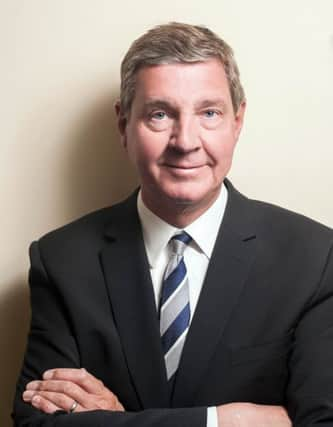David Alexander comment: My vision for Edinburgh? More family housing


Accordingly, the city council has set up an engagement campaign titled 2050 Edinburgh City Vision, which will run until December, with interested parties invited to share their desires for the future with the intention of unlocking creative potential for collaboration across all sectors.
The response of some of us who operate businesses and live in Edinburgh is likely to be that there are enough problems in 2018 – the poor condition of our urban roads and the sight of uncollected rubbish strewn to name just two – without thinking about what the capital will be like more than 30 years from now. And with an already cash-strapped council short of the finance necessary to turn “visions” into reality, this might end up in another of those pointless local government exercises that shuffles around lots of paper but achieves little else.
Advertisement
Hide AdAdvertisement
Hide AdNevertheless, it seems churlish not to join in the spirit of the campaign, so here are some thoughts on how the capital might be improved, one caveat being that these ideas should not take more than 30 years to implement.
From a property perspective, I would like to see a greater choice of family-type accommodation closer to where residents work. While Edinburgh boasts a seemingly endless choice of flats, the supply of detached, semi-detached and terraced villas with gardens is limited. Yet within the city boundary, particularly to the south and west, there are great swathes of green belt land, not all of it productive. If employment growth turns out as anticipated, the only way incoming families can be accommodated is in outlying towns, thus leading to more commuting over further distances – and what’s “green” about that?
I realise many jealously guard the green belt, so perhaps a compromise could be achieved; rather than carpet fields with conventional housing estates, why not allow the building of smaller “settlements” providing accommodation but retaining a rural environment at the same time?
Whether or not this comes to pass, the value of property goes hand in hand with access and in this Edinburgh is severely lacking. It is easy for most bus-users to get to and from the central area and move around the city generally. However, there are other residents and out-of-town commuters who genuinely require private transport for business or personal reasons and for them Edinburgh is increasingly becoming a nightmare. This is not only apparent on arterial roads but also on the city bypass, where nose-to-tail congestion has become the norm at peak times. This can be alleviated by replacing the Sheriffhall roundabout with a flyover (why was this not included in the first place?) but there is also, surely, a case for an upgrade to three-lane motorway standards. This is not simply a “roads” issue. For example, some have complained that jobs and commercial infrastructure (eg the airport and South Gyle business park) are already unfairly weighted towards west Edinburgh; therefore it follows than an increasingly congested bypass will diminish the prospects of those living in the east and south of the city.
Realistically, the two aforementioned proposals will take some time to implement. However my third suggestion needs immediate attention – and that is for Edinburgh councillors to ignore calls for a tourist tax on hotels and B&B establishments. This comes at the same time as proposals to introduce greater regulation of housing turned over to holiday and short-stay lettings. Nevertheless, if hotel prices rise (due to a tourist tax) there will inevitably be even more demand for self-catering accommodation by tourists in residential areas. The outcome will be a further decrease in the housing supply for long-term residents – the very people for whom the 2050 Edinburgh City Vision is supposed to deliver results.
David Alexander is MD of DJ Alexander.